I was reading recently of the industrial conveyor belt that Venetian shipping introduced in the late Middle Ages and one of the reasons behind Venice being so successful through the Renaissance. Wow, that’s pretty niche isn’t it? Wonder if you, reader, have been pondering the same? Have you been considering the role of the Doge or the Church? Ok probably not, you may well be asking the ‘so what’ question. Here it is, the workforce was the largest in the world before the industrial revolution and the rise of British naval capacity. These workers were not particularly well paid, but they were loyal, why? Simple really, they were guaranteed work. Other projects were more highly paid, but they came with the anxiety of inconsistency.
The Venetians held on to their work force because, even if ships were not commissioned, they were paid and could find additional work elsewhere. It removed the anxiety of having to move location to find the work. The anxiety they did suffer from was concern about the extent to which the wine ration was watered down, trouble followed excessive dilution but that is quite another story.
In a recent school inspection I was on, one of the senior leads mentioned they were dealing with a rise in levels of anxiety among the children. There is no doubt that post Covid this is the reality across the country and we share in some of it. Our systems and pastoral care work to mitigate it, but there is a degree of anxiety that is to be fair, part of the human condition. I thought I might explore some of this and some choices we can make to grow through it.
That feeling of being in the wrong place or of being ‘found out’ so to speak, often referred to as imposter syndrome, is responsible for some. It is not confined to those who lead or manage, it affects people in all walks of life regardless of their age or role. It comes from a sense of not being up to the task, of insecurity, usually born out of comparison with others. “They all know what they are doing and seem so confident,” as opposed to little old me quaking with indecision and worrying about the next move. I have lost count of the number of times adolescents have told me this. The introspection it reflects is natural, as children grow into adolescence so much of their world changes that losing their footing on the escalator of life is not surprising. What to do about it? Be honest!
There is real efficacy in sitting down and listing the things one is good at, the areas of strength from whatever dimension. It need not be academic, each one of us has an abundance of talents and telling ourselves what we are good at is not vainglorious or narcissistic but the necessary corrective to a sceptical self-criticism born from comparison with others. Oh, and stop doing that too, it is incredibly toxic. I could write for England on the toxicity of comparison and the futility of it. Just think about that for a second: I judge myself negatively in comparison with someone I am not. It is staggeringly unreasonable but pervasive, prevalent and poisonous to self-esteem. Find your own strengths and play to them.
The radical self-awareness that sees both strength and development will comfort the distress of comparison. Getting thoughts out of our head onto paper will also help. The solipsism of self-doubt imprisons us in our own imaginings. We can find thoughts swirling around our heads unable to think clearly, disturbing sleep and like the hound of heaven chasing us around the labyrinth of our own minds. Setting our thought out on paper externalises them and gives us perspective, if nothing else it allows us to ‘dump’ them in a space where we can more easily organise them and prioritise what we need to do. Just physically writing them down, old school, pen and paper, is ‘doing something’ and brings its own sense of achievement.
The final thought I want to table on this, is one I have mentioned many times in the past, and one I share with the children routinely: win the moment in front of you. Having some master plan is lovely but looking too far ahead into the distance is daunting and a bit like the road from Clonroch to Enniscorthy, mile after mile of gradually rising terrain and, for a younger me on a bike, it felt like it would never end. Stare at the space in front of the wheel and keep peddling, the biggest battle was belief not the terrain. By focusing on the next decision not the execution of the master plan, we take control of the game into our hands, we have ownership and that, in itself, reduces the anxiety of feeling out of our depth, out of control. Be radically aware of our self, avoid comparisons, note what we are troubled by and focus on the decision in front of us not the masterplan. We have come a long way from Venice but getting a lot closer to Enniscorthy.
MORE BLOGS —
Parent wants
Been a busy few weeks – though when isn’t it? I have spent quite a bit of time speaking with Prep School Heads.
Bridges
In January 1942, in a small suburb just outside Berlin, a group of engineers, scientists and logicians gathered to map out a strategy that would change the face of Europe.




